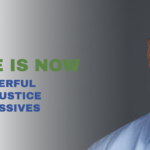(This article was originally published in Canadian Dimension.)
In early 2008, as the subprime mortgage crisis laid waste to the American financial system, a young, charismatic, African-American politician by the name of Barack Obama mounted a challenge to the leading candidate for the Democratic presidential nomination, Hillary Clinton.
At the time, I was a securities class actions lawyer practising in Canada. I had recently negotiated the settlement of North America’s first securities class action against a subprime mortgage lender, FMF Capital.
FMF’s subprime lending business was conducted entirely in the United States, but in 2005, Canadian underwriters, led by the Bank of Montreal’s investment banking subsidiary, enabled FMF’s management to list the company’s shares on the Toronto Stock Exchange. Within months of that listing, FMF suddenly collapsed, resulting in massive losses to Canadian shareholders.
Days after FMF’s failure, I was retained by one of its indignant shareholders to investigate the causes of FMF’s demise. My colleagues and I began by tracking down FMF’s US-based, former employees.
By interviewing them, we learned about rampant fraudulent practices in the US mortgage industry, like ‘liar’s loans’—mortgage loans knowingly extended to borrowers who had lied about their income and assets. FMF’s ex-employees explained that these loans, which were destined to go into default, were quickly sold by FMF in large bundles to Wall Street banks. The banks then re-packaged the loans into complex, mortgage-backed securities and sold them to unsuspecting institutional investors, including union pension funds.
Our class action against FMF and its bankers was later described as the “canary in the coal mine”—a harbinger of an historic credit crisis that was about to bring the global economy to its knees.
As the scale of America’s fraud “epidemic” became clear, Obama emerged. He eloquently expressed his compassion for the dispossessed and his indignation at their dispossession. He was young, cool and unsullied by the cesspool of Beltway politics. He had a history of community activism. He came from a racialized community in a country where no racialized person had ever held the presidency.
In April 2008, Obama inspired me to act. As an important Democratic primary in Indiana approached, I informed my law partners that I was taking a brief absence to assist Obama’s campaign.
The next day, I drove from southwestern Ontario to Indianapolis. Upon my arrival there, I presented myself at the local headquarters of the Obama campaign and offered to volunteer.
I was immediately assigned to canvass for Obama in poor, predominantly African-American neighbourhoods. My task was to get out the vote.
In the days that followed, I interacted with hundreds of voters, the majority of whom were Black. As I stood on their doorsteps urging them to vote for Obama, many of them expressed amazement that a white Canadian man like me had come to a poor Black neighbourhood in the US to canvass for a Black presidential candidate.

After 10 days of canvassing, and on the eve of the Indiana primary, I and other volunteers were rewarded for our efforts with a front-row view of Obama at his last rally before the Indiana primary.
Six months later, after Obama had secured the Democratic nomination, I returned to the States. On the weekend before the election of 2008, I went to Pittsburgh to canvass for the Obama campaign a second time. This time, I was accompanied by a few other Canadians, including my good friend, Atul Bahl, and my former law partner, Mike Eizenga.
As had happened in Indianapolis, the Obama campaign assigned us to canvass in poor, predominantly African-American neighbourhoods. Mike later authored an op-ed in the Ottawa Citizen in which he described our experiences in Pittsburgh. In an article entitled “Barack’s Canucks,” Mike explained that the local organizers of the Obama campaign had sent us to canvass “somewhere nobody else wanted to go.”
On election night in November 2008, we watched Obama’s victory in a large and raucous union hall in Pittsburgh. When it became clear that Obama would win, we shed tears of joy.
But, within a few months of that joyous night, I realized that I had been deceived.
The first sign that Obama was not the candidate he had claimed to be was his decision to appoint Eric Holder as attorney general. After serving as a US attorney under Bill Clinton, Holder worked for the elite law firm Covington & Burling and represented the firm’s multinational corporate clients in litigation.
Holder’s firm had acted for tobacco companies for decades. It had deep ties to Wall Street. There seemed little prospect that an attorney general who had devoted much of his legal career to clients such as these would vigorously prosecute the elite bankers who had caused so much suffering through their fraudulent activities. Indeed, when Holder stepped down as attorney general six years later, he had not sent a single banker to jail for the mortgage crisis.
Then came Obama’s refusal to prosecute a single American official for torture. Throughout his campaign, Obama had rejected Dick Cheney’s preposterous claim that waterboarding is not torture. Yet, when Obama was presented with the opportunity as president to hold the torturers accountable, he dismissed their savagery as a “mistake” and refused to prosecute any of them. He justified his refusal on the basis of Bush-era legal memoranda whose logic was as tortured as the victims held in CIA-run black sites around the world.
Finally, in late December 2008, Israel launched Operation Cast Lead, a series of brutal attacks on the densely populated Gaza Strip. In that operation, Israel’s military killed at least 1,383 Palestinians, including 333 children (in contrast, 13 Israelis were killed during the three-week conflagration). Multiple human rights groups documented the commission of war crimes by Israeli forces, including the unlawful use of white phosphorous, a chemical weapon that causes severe burns upon contact with the skin or eyes.
Rather than criticize or seek to restrain Israel’s government, President-elect Obama chose to remain silent, leaving it to the fiercely pro-Israel Bush administration to do nothing about the IDF’s mass killing of Palestinians. Meanwhile, Obama’s aides repeated the mantra that “there is only one President at a time.” Only weeks earlier, however, the President-elect had not hesitated to express his support for the bailout of Wall Street. If indeed there is only ‘one President at a time,’ why did the president-elect publicly support a taxpayer-funded plan to save fraudulent banks?
In the years that followed, the scale of Obama’s electoral deception became clearer.
In his first term, his administration deported far more people than the Trump administration.

Immediately upon taking office, Obama embarked on a global drone-killing spree in which countless innocents died, prompting Dr. Cornel West and others to condemn Obama as a “war criminal.”
And in a wealthy country where tens of millions lacked access to decent healthcare, Obama refused to support a public option—a government-owned and -operated health insurer that could offer coverage on a not-for-profit basis and therefore at lower cost to vulnerable Americans.
Today, 12 years after Obama first assumed office, the world awaits the presidency of Obama’s Vice-President, Joe Biden. What should we expect?
The answer should be abundantly clear—as long as we do not allow our collective joy at the demise of Trump’s presidency to cloud our judgment.
Biden first became a US Senator in 1972, almost 50 years ago. His half-century record of holding public office is a rich source of information about the kind of president he is likely to be.
First, Biden’s record raises troubling questions about his commitment to anti-racism. As noted by Ed Kilgore in a recent New York Magazine article:
But the reminiscences and actual events of the past that keep getting Biden into hot water are not, by and large, sudden revelations of previously unknown aspects of his political career. His early Senate years as an anti-busing advocate were well-known. The whole world watched his erratic stewardship of the Clarence Thomas hearings and his associated dubious treatment of Anita Hill. The 1994 Crime Bill that was used against Hillary Clinton by both Democratic and Republican critics in 2016 was universally understood to be a Joe Biden product; I personally sat spellbound in front of a TV back then and watched him indefatigably promote it on C-SPAN. And his chummy relationship with the racist grandees of the Senate Judiciary Committee was evident for all to see as he climbed the seniority ladder over the years. Before he was known as a grabber and a hugger, Joe Biden was most definitely known as a back-slapper.
Biden’s commitment to environmental justice is as questionable as his commitment to racial justice. Biden has repeatedly vowed not to ban fracking, which has enabled America to become the world’s largest producer of oil. Biden has declared his opposition to the Green New Deal. On Biden’s watch, the Obama administration opened up pristine wilderness in Alaska to oil drilling.
Biden is also a warmonger. He supported Bush’s criminal war on Iraq, and before that, the bombing of Yugoslavia. The NATO-led destruction of Libya happened while Biden served as vice-president, as did Obama’s drone-killing spree. In one of the debates leading up to this year’s election, Biden vowed to make Iran—a country whose people have been devastated by US sanctions—“pay a price” for the unsubstantiated claim that its government tried to interfere in the US election. During his presidential campaign Biden assured the press that he foresaw no significant cuts to the US government’s stratospheric military spending. Indeed, within hours of his victory, defence contractors expressed confidence that Biden will preserve the status quo.
What about the vitally important issue of healthcare? The US is the only wealthy country that does not have universal health coverage. Its citizens pay far more per capita for healthcare than the citizens of any other wealthy state. Tens of millions of Americans lack health insurance. An estimated 530,000 American families declare bankruptcy each year because of medical issues and bills. It is no surprise, therefore, that 72 percent of Americans want a “government-run healthcare plan”—but not Joe Biden. The supposed saviour of the American people has repeatedly expressed opposition to the wildly popular Medicare-For-All.
Joe Biden is no saviour. There is nothing progressive about the man. He is as beholden to the plutocracy as Trump. One can easily imagine that Biden is relieved by the Democrat’s apparent failure to gain control of the Senate, because Republican control of the Senate provides Biden with a convenient excuse to abandon his empty promises of progressive action.
Since Biden’s victory became clear, he has repeatedly stressed unity. After four years of Trump—the most divisive President of our lifetimes—the promise of unity seems appealing, but not from the lips of someone like Biden. For the new president, ‘unity’ means making concessions to Republicans and abandoning the progressives who fought so hard to ensure Trump’s defeat.
The real Joe Biden will re-emerge in the weeks ahead, as he selects and announces the members of his cabinet. The people Biden chooses to help him govern a superpower that is in rapid decline will tell us all we need to know about the presidency to come.
In the final analysis, the best indication we have about the type of leader Joe Biden will be is the assurance he provided to some of his rich donors at a ritzy Manhattan fundraiser in June of last year: if he were to become the President of the United States, Biden told them, “nothing would fundamentally change.”
Mercifully, Trump has lost, but the profound injustices that empowered him remain.






The squad is intact. Long live the rabble!
Thank you for this. Honesty matters more than ever and so does real change. I would like to see you in a position of power!
Sincerely,
Janet
Thanks Dimitri. I’m so glad that you have broken the mythology of Biden-as-savior. The Democratic party remains as plutocratic and racist as ever., and it put far more energy into parachuting Biden into destroy Bernie Saunders’ movement than into articulating any substantive change. His whole campaign had little other content than “anyone but Trump.”
Sobering article, Dimitri. For a related BIG PICTURE synthesis of what’s next, read my repost of Dr. Nate Hagens essay, which I have titled, Americans and their leaders face ten daunting challenges in the next 4 years, says Dr. Nate Hagens : Biden faces challenge of navigating new existential challenges using failed economic and cultural tactics.
Here is Nate’s list of ten daunting challenges —
1/ COVID 19- Spilling into 2021 — As bad as it has been, the worst may still be ahead of us
2/ V vs K inequalities – V quick and sustained recovery for professionals / K for working class, different parts of the economy recover at different rates, times, or magnitudes
3/ [Biden faces challenge of navigating new existential challenges using failed economic and cultural tactics]
4/ The Zombies are Coming — Cheap debt is even turning big corporations into debt-ridden Zombies
5/ A Cul-de-Sac – and Full of Cans – When decades-old debts come due and we can’t pay, we keep kicking the cans down the road
6/ Complexity — our core risk is declining returns from increasingly complex globalization
7/ Our Basement Larder is — Unbeknownst to Most – Going Bare — COVID-19 is about to drive US oil production, including shale oil … off a cliff
8/ Other Energy Sources — Biden’s Green New Deal is good news, but renewables will not be our salvation
9/ Meaning and Well-being — If we’re wise, the coming decades will be more about well-being “for all” rather than for all consuming more and more stuff
10/ Protecting Heaven on Earth — The state of the natural world needs to be a top priority in our values
Bottom line, the one threat that grabbed my immediate attention is #7 — COVID-19 is about to drive US oil production, including shale oil … off a cliff, with massive consequences for society.
Sobering article, Dimitri. For a related BIG PICTURE synthesis of what’s next, read my repost of Dr. Nate Hagens essay, which I have titled, “Americans and their leaders face ten daunting challenges in the next 4 years, says Dr. Nate Hagens”: Biden faces challenge of navigating new existential challenges using failed economic and cultural tactics.
Here is Nate’s list of ten daunting challenges —
1/ COVID 19- Spilling into 2021 — As bad as it has been, the worst may still be ahead of us
2/ V vs K inequalities – V quick and sustained recovery for professionals / K for working class, different parts of the economy recover at different rates, times, or magnitudes
3/ [Biden faces challenge of navigating new existential challenges using failed economic and cultural tactics]
4/ The Zombies are Coming — Cheap debt is even turning big corporations into debt-ridden Zombies
5/ A Cul-de-Sac – and Full of Cans – When decades-old debts come due and we can’t pay, we keep kicking the cans down the road
6/ Complexity — our core risk is declining returns from increasingly complex globalization
7/ Our Basement Larder is — Unbeknownst to Most – Going Bare — COVID-19 is about to drive US oil production, including shale oil … off a cliff
8/ Other Energy Sources — Biden’s Green New Deal is good news, but renewables will not be our salvation
9/ Meaning and Well-being — If we’re wise, the coming decades will be more about well-being “for all” rather than for all consuming more and more stuff
10/ Protecting Heaven on Earth — The state of the natural world needs to be a top priority in our values
Bottom line, the one threat that grabbed my immediate attention is #7 — COVID-19 is about to drive US oil production, including shale oil … off a cliff, with massive consequences for society.
Bottom line, the one threat that grabbed my immediate attention is #7 — COVID-19 is about to drive US oil production, including shale oil … off a cliff, with massive consequences for society.